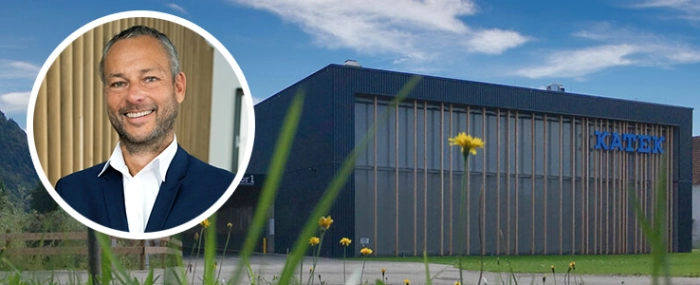
© Katek Group
Electronics Production |
Evertiq’s industry pulse report – KATEK
German EMS provider KATEK has delivered solid performances throughout 2021. However, that doesn’t mean that the company wasn’t affected by the pandemic and the semiconductor shortage. As for other companies, there has been challenges; but a clear focus on staying "agile and robust" helped KATEK to stay on top.
In this article series, Evertiq has reached out to a number of European EMS providers to see how the challenges from the last two years have affected everyday operations. In the second part of the series, we spoke to Rainer Koppitz, CEO and co-founder of the KATEK Group.
Given the fact that we have battled the pandemic for close to two years now, what lessons have been learned and what changes have been made in your company?
“I’ve become humbler. Two years ago, I could not have imagined that we – as humanity but also as an industry – would remain trapped in the choke hold of a virus for so long, and with such profound effects on all aspects of life. And the conclusion? A company must not only be resilient, but also robust, in other words., following the ideas of Nassim Taleb. The company must be set up in such a way that it can, not only survives the crisis, but emerges from it as a better company and a better team. That is my goal” Rainer Koppitz tells Evertiq.
As soon as we entered 2021, it became very clear that the pandemic isn’t the only problem weighing down on the industry, the shortage of components has greatly affected our industry and adjacent ones, how is your company working to overcome the issues of tight supply?
“The shortage affects all industries. Even books are being published as e-books before they are published in print, and many are missing out on Christmas sales because paper is scarce. For us in the electronics industry the following rules applies; the material crises cause the most damage to companies that are either small, have a high automotive share or have poor cash flow. The first one because smaller companies are less significant in the eyes of the suppliers and hence the parts are scarcer and more expensive. The second because the automotive industry is particularly affected, just consider the more than 30% YoY drop in sales in the European automotive industry in October. And third, cash is king these days. The drastic increase in inventories – in some cases doubling since the beginning of the year – can swallow a company's cash reserves quickly. Unfortunately, for these reasons we will see some companies in our industry in struggling in the next few months.”
As a European manufacturer, what do you think of the fact that the European electronics industry is still very dependent on Asia for semiconductor supplies?
“I'm a big fan of fighting battles that can be won. The semiconductor battle, especially in the front-end, in other words the wafers, was lost many years ago to Taiwan and South Korea, this debate is over and done with. In the backend area, some companies like NXP or Infineon are standing their ground, but autonomous supply in Europe is a delusion. The PCB battle has been largely lost too. What we should concentrate on is strengthening the electronics industry across the entire value chain in Europe. The European industry depends on strong and innovative local partners — those that develop and manufacture electronics — without being totally dependent on Asia, or the US. We see our part in this and aim to become the number two EMS in Europe behind Zollner as soon as possible.”
Has the pandemic highlighted the need for closer and shorter supply chains in your opinion?
“Absolutely. European customers expect their European electronics partners to follow their geographical footprint, in other words to produce in Europe for European customers, but also in Asia for Asian customers and, in North America for that market. ‘Tourism’ of electronic assemblies from country to country and continent to continent creates vulnerability because too many things can go wrong. After the pandemic and shortage, the next crisis will come and protectionism will probably increase further. This is obvious to all of us. Incidentally, cutting this ‘manufacturing tourism’ will help improve sustainability and reduce the environmental impact of every product"
What is the general feeling now that we are drawing close to the end of 2021 and approaching 2022?
“The order books are extremely full and as soon as the shortage subsides a bit, I expect the first rays of light to appear, hopefully in Q1 and Q2. Then there will be a boom in our industry. I also I expect a significant boost for electronics in green technologies. Only with the application of new technologies – and electronics always play a key role here – can greenhouse gas reduction be achieved., we will fail if we try without it. Of the 51 billion CO2 equivalents that mankind releases into the air every year, only around five percent was saved in the year the earth stood still. This low reduction occurred despite the standstill of the economy, of tourism, and of our social lives. This shows that it is impossible to go to zero simply by doing without.”
“All in all, in am delighted with the performance of the KATEK family and remain extremely enthusiastic about our future. Our business has not only survived, but has thrived in 2020 and 2021, I am expecting more of the same in 2022. We remain ambitious and confident in our vision for the future of electronic manufacturing,” Rainer Koppitz concludes.


.jpg)
